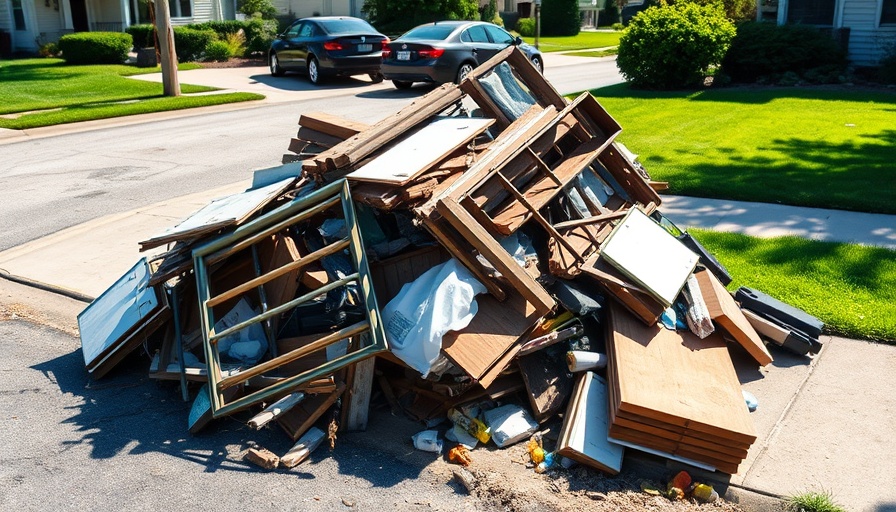
The Frustration of Delayed Heavy Trash Pickup in Houston
Houston residents are grappling with heightened frustration as the city’s Solid Waste Management Department (SWMD) has announced a three-week delay in heavy trash pickup. As old furniture, mattresses, and large debris accumulate on curbs, the burden on residents and the impact on neighborhoods become increasingly evident.
A Closer Look at the Situation
Neighborhoods such as Almeda Trace in south Houston are experiencing significant chaos due to the delays. With debris lining the streets for weeks, concerns over safety and hygiene are rising. City officials have attributed the delays to a combination of staffing shortages and equipment issues, further exacerbating the concerns of residents who relied on timely waste collection.
Community Response: Voices from Houston
Residents are not just frustrated; many express a sense of helplessness as they navigate the growing piles of trash. One resident shared their concern, stating, "We don’t know how much longer we can put up with this. Our neighborhood is starting to look like a junkyard." The collective frustration in the community reflects a broader issue related to municipal services and their ability to meet citizen needs, particularly in times of unforeseen setbacks.
Understanding the Causes Behind the Delays
The ongoing delay has wider implications beyond aesthetics. It raises questions about city management and responsiveness. The SWMD's problems not only stem from workforce constraints but also signal deeper systemic issues within municipal operations. Increased demand for heavy trash pickup in the aftermath of recent storms has added pressure, exposing a lack of contingency planning.
Health and Safety Implications of Accumulated Debris
The accumulation of debris is not merely an inconvenience. It poses serious health risks as it can attract pests, create hazardous environments, and worsen air quality as materials become weathered and disintegrate. The city will need to explore strategies to mitigate these risks while working to resolve the garbage collection delays.
Future Predictions: What Lies Ahead for Waste Management in Houston?
Looking forward, experts suggest that Houston's waste management system must prioritize innovative solutions. Potential approaches include partnerships with private waste management services and investments in technology to streamline collection schedules. Addressing workforce shortages through hiring initiatives and enhanced training programs could also improve future responsiveness.
Community Insights: Taking Action Against Trash Delays
Many residents are rallying to voice their concerns through social media channels and community meetings with city officials. This grassroots approach is vital, as it empowers citizens to actively participate in local governance. Those affected must remain vigilant and engaged, advocating for timely services to ensure their voices are heard and management takes action.
Conclusion: The Path to Accountability
As issues with heavy trash pickup continue, residents are reminded of the importance of advocating for their needs and holding local government accountable. Prompt action by the city can ensure that Houston’s streets are clutter-free, safe, and reflective of the city's commitment to its communities' well-being.
For those looking to stay informed and engage with city officials, participating in neighborhood meetings and contacting representatives can make a real difference. By working together, residents can influence policy decisions and help shape a cleaner and more responsive city.
 Add Element
Add Element  Add Row
Add Row 



Write A Comment